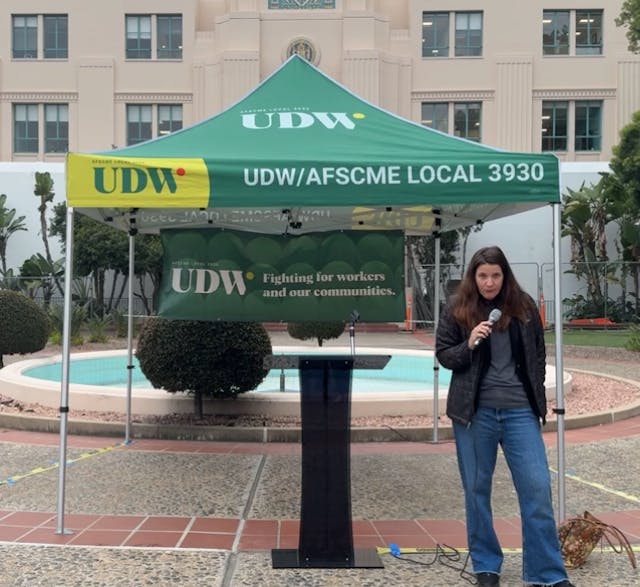Science, Math and Technology Key to Upward Mobility for Latinos
New America Media
Editor’s Note: Dr. Alicia Abella is one of the country’s top Latina scientists and a promoter of science, technology, engineering and math (STEM) career tracks for women and ethnic minorities. She was recently appointed to the Presidential Advisory Commission on Educational Excellence for Hispanics and is currently executive director of the Innovative Services Research Department at AT&T. Dr. Abella recently spoke with New America Media associate editor Jacob Simas about the opportunities a STEM education can afford women and people of color.

According to a recently published Pew Research Center report, the median wealth of Hispanic households fell by 66 percent from 2005 to 2009, marking the largest decline in wealth of any ethnic group in the United States during that period.
It’s an astounding number. But if anything, it should give people more courage to move forward and to realize the importance of an education in helping them rise above what the community is experiencing today.
The biggest investment you can possibly ever make is in yourself and in your education, because it’s education that will afford you the opportunity to recover from things like the economic downturn that we see today. It gives you that extra edge.
It’s also true that we’re living through an economic recession. School budgets are being cut, college tuition is going up and families are feeling the pressure. It’s one thing to say education is important, and it’s another thing to actually have the resources to pursue it.
There are places and areas where resources are being cut; this is true. But at the same time, there are other programs that are growing… The community colleges are a good source for students to go into because they are not that expensive and there is financial aid available, especially to [the Latino community], because it’s recognized that this particular community is the fastest growing and there is this incredible pool of talent that this country needs, especially in the areas of STEM (Science, Technology, Engineering and Math).
Why the emphasis on STEM careers in particular? And why have you chosen to target Latinos and women specifically?
Actually, the answer is quite simple. The highest growing number of jobs is in the technology field, and there is more demand for those jobs than there is supply.
We’re going to need 800,000 more jobs by 2018 in computer technology alone. In the last three years we’ve only graduated 24,000 in those sectors and that’s not nearly enough. It would be preferable to grow [those workers] here, and we have the pool to train and nurture them here. We’re just not doing it.
Also, I think a lot people don’t recognize that engineers are actually paid quite well. What people see in the news are the big salaries of athletes and entertainers, but engineers are quite well paid and they have a skill set that they can apply to different fields.
Getting back to your question about underrepresented minorities and women in STEM, it’s because there aren’t enough of us. And really, in order to be innovative, you need a diverse population of people because it’s that diversity of thought that will ultimately lead to innovation.
So the U.S. has a pool of talent that is going untapped. Can we begin to tap that human resource without first addressing the larger issues of immigration reform, like the DREAM Act?
It’s probably all linked, but I think we can still make significant improvements without solving all those problems. In my role [as a member of] the White House Advisory Commission on Educational Excellence for Hispanics, we’ve touched on all of these different areas: policy, immigration, labor, housing… because we recognize that there are policy changes that have to happen in all of those areas before we can fully help the [Latino] community. But when it comes to STEM education and trying to encourage students to participate, there are plenty of [Latino students] out there that we can move into these areas without having to change all these other policies, and we’re not currently targeting them sufficiently well.
Specifically, how do you attract more students to math and science? How do you convince the 16-year-old son or daughter of farm workers living in California’s Central Valley, who does not want to spend his or her life working in the fields, that science and math offers a way out?
In my personal experience, when those students have come up to me, they’ll tell me that they can relate to me: “She looks like me.” “If she can do it I can do it.” So having role models can open the eyes of students. There is also mentoring, where you do more than just come in and speak for a while, where you are actually engaging in a relationship. There is a program, for example, called Mentor.net that does these things. There are programs that pair high school students with graduate students whom they can talk to. My own career came about through asking questions and having someone to ask those questions to. The question now and the challenge for me has been, how do we move beyond the individual relationships and come up with something we can scale?
Is it enough for young adults to take an interest in science or math when they get to college, or does the work need to begin earlier?
Science and math are topics that students tend to shy away from at an early age because they can be difficult. And the main reason many students find math boring and difficult is because they’ve fallen behind in it. Math is one of those subject areas where you cannot fall behind, ever. Because each time you learn something new, it’s based on the knowledge you gained previously. In order to get to algebra, you need to understand your fractions and your decimals and you need to understand multiplication, and if you don’t get that right, then you’ll be lost in algebra. But if you understood fractions and understood your decibels, then algebra wouldn’t be hard.
What do you think is to blame for that common way science is viewed?
It’s a cultural and a societal thing. There has been a shift into people wanting to get things quickly. But in science and engineering, that’s not the case. It takes time and energy and work to get through those courses.
Research also shows that if you have a parent who is engaged in their child’s education, those students will succeed at a rate far greater than those whose parents are not involved. So it is important to work with the parents to get students engaged.






